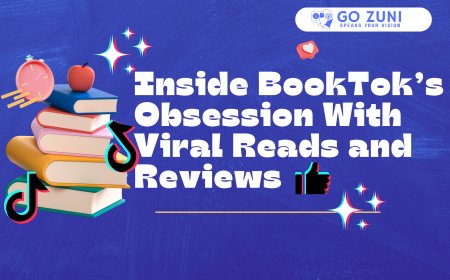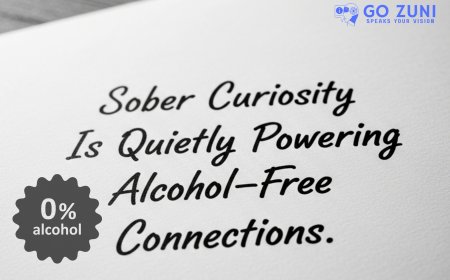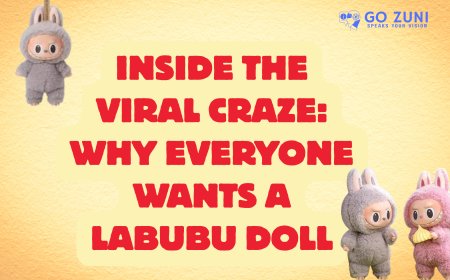Sober Curiosity and the Rise of Alcohol-Free Networking
Discover how the sober curiosity trend is quietly reshaping success, with alcohol-free networking unlocking clarity, confidence, and transformative growth.

Introduction
As Generation Z and the younger generations shift towards a more wellness-centred culture that focuses on maximising youth and beauty, as well as overall well-being. There has also been a second shift in young adults choosing sobriety, moderation or cutting out alcohol more and more. And this is not just to keep up with New Year’s Resolutions or Dry January.
Every report on Gen Z drinkers states a decline in drinking culture amongst young people born around the early 2000s. So far, there hasn’t been any research as to why this decline persists, but this new shift has impacted social spaces, largely driven by the sober curious movement. Many young adults now use the term soberish, meaning that they are interested in cutting back without complete abstinence.
With the lack of third spaces, socialising has always meant meeting at a café or some other public space that one must pay to occupy. But now, as the awareness around substance and alcohol abuse, and its ready availability grows, community-centred third spaces that support sober curiosity, mindful drinking, and soberish lifestyles are emerging.
This is also impacting change in networking events that were previously alcohol centered to now becoming completely free of it. The term ‘sober curiosity’ then arises, which provides the opportunity for people to still be able to enjoy a drink or two and be present in soberish spaces without feeling stigmatised.
In this article, we will be dissecting the recent trend of ‘sober curiosity’ and what it exactly means to be sober curious.
Also learn about Holistic wellness culture and its impact on Mental, Physical and Emotional balance here.
What is Sober Curiosity?
Verywellmind defines ‘Sober curiosity’ or being sober curious as having the option to choose, to question, or to be mindful about your relationship with alcohol without committing to complete abstinence.
The sober curious movement changes the conversation on drinking for socialising purposes, and encourages individuals to be mindful of their drinking habits while actively trying to reduce their intake or frequency. This also arises from the stigmatised message that is often associated with non-alcoholic preferences, cutting back or sobriety, even in social situations such as networking events.
Today, many prefer the soberish lifestyle rather than complete abstinence, which helps them to sustain their well-being.
This cultural wave, then, is not just a wellness trend; the sober curious movement becomes an important contributor to the dialogue around generational lifestyle choices.
Why More People Are Saying No to Alcohol
George F. Koobs, an expert on alcohol and stress-related factors, stated in an interview for Time Magazine that the decrease in the number of Gen-Z drinkers could also be a result of the change in socialisation patterns of younger generations. “Alcohol tends to be a social drug, even for young people, so part of the decline in underage drinking could be related to less in-person socialising, says Koob.
Authors Sumathi Annamalai, Aditi Vasunandan and Avisi Mehta found that even though Generation Z is highly connected virtually, they are socially disconnected. Their primal needs for socialisation, which include developing and nurturing social relationships, exist primarily in the digital world. A drawback of this is the push towards a deeper social isolation.
Another interesting report from McKinsey Health Institute claims that the older generation’s social media usage is at the same level as Gen-Z users, with Baby Boomers from 8 of the 26 countries surveyed reporting having posted more frequently on social media than young adults.
Additionally, the Taylor & Francis report also warns users of the negative effects that come with an extreme relationship with technology, such as lower quality of life and increased risk of early death.
Also, read about ultimate mental wellness tips for a better mind here.
Sober Networking Events: The New Happy Hour?
Sober Networking is a deliberate approach to building professional and social connections without the use of alcohol or other substances as a social lubricant. It involves attending networking events, conferences, and social gatherings to foster genuine relationships based on shared interests, skills, and professional goals.
A highlight of the sober curious movement is that it promotes mindful drinking, moderation, or even abstinence.
This trend is particularly gaining traction among young adults who are increasingly exploring sobriety and cutting back on alcohol as a lifestyle choice to enhance their overall well-being.
Also, read about how Healthy food and Lifestyle aid graceful ageing here.
Why opting for an alcohol free networking event is beneficial:
In an article by Sober Broker, the benefits of opting for alcohol alcohol-free networking event are discussed. These points are further dissected below:
I. Going Alcohol Free helps conversations flow well:
Being sober helps you to be a better listener. Good listeners are better at networking at office events, where alcohol might otherwise disrupt authentic socialising.
II. Better Reliability, which leads to building a trustworthy relationship:
Choosing sobriety also means that your client or colleagues that you want to build rapport with are more likely to find you dependable. Alcohol gives a drinker the false sense of confidence to make a lot of promises that they might not be able to meet up with later.
By being sober or even soberish, one can meet the expectations that one sets with a clear mind.
III. Better memory and follow-up:
An alcohol induced night also leads to a morning of fragmented memory of all the conversations and commitments one had made the previous night. Practising mindful drinking or abstinence removes the awkward morning-after dilemma and reduces any repercussions of a missed opportunity.
By avoiding stigmatised assumptions around non-drinking, a person can be more present and equipped to nurture valuable friendships.
Read about the importance of gut health and its impact on overall wellness here.
Challenges of Navigating Alcohol centered spaces:
The alcohol and Drug Foundation lists several challenges and barriers that a person might face when reshaping their relationship with alcohol, either by moderation, sobriety, or joining the sober curious movement.
I. Time:
Longer working hours or responsibilities to career and family can all lead to a higher risk of alcohol dependence or resorting to alcohol for comfort. This limited time can make mindful drinking, cutting back, or finding healthier coping strategies more difficult.
II. Housing:
Having access to safe, stable, affordable, and comfortable housing where one’s choices, such as abstinence or moderation practices, are supported and respected can go a long way when trying to change old behaviours or form healthier habits.
III. Social:
The presence of healthy and positive relationships with friends, family or others that one can lean on or get support from during hard times is a huge factor. In a culture that is alcohol centered, choosing sobriety or abstinence can be a challenge without the right support systems that help maintain your well-being.
IV. Financial:
Being able to afford simple things like rent, groceries, support for mental well-being, and physical health is another essential part for those exploring the sober curious movement or mindful drinking.
Additionally, non-alcoholic events can be expensive for some, especially young adults looking to find others living the sober curious lifestyle.
V. Local services:
Location also matters. A sober curious lifestyle often relies on accessible resources such as wellness programs, support groups, or non-alcoholic third spaces.
The availability of these services depends on the location that a person lives in, and accessibility to non-alcoholic communities for socialising.
Conclusion:
As the sober curious movement is gaining traction among young adults, alcohol is no longer a welcoming ritual into adulthood as it once was. With the rise of non-alcoholic networking events and more awareness around dependence disorders, young adults are choosing to form community-based third spaces. Practices such as mindful drinking, moderation, or even abstinence are celebrated rather than being stigmatised.
By choosing sobriety, going soberish, or simply cutting back, professionals gain a restorative break that sharpens focus, deepens socialising, and boosts overall well‑being.
Follow the GoZuni space for more research-backed culture-related articles!
What's Your Reaction?
 Like
1
Like
1
 Dislike
0
Dislike
0
 Love
0
Love
0
 Funny
0
Funny
0
 Angry
0
Angry
0
 Sad
0
Sad
0
 Wow
2
Wow
2





































